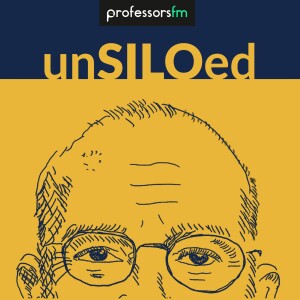
312. The Origins of Human Rights feat. Samuel Moyn
 2023-07-31
2023-07-31
The concern for human rights seems to be deeply rooted in history and based on longstanding moral concerns, but the modern human rights movement has very different motivations and concerns than previous rights-based movements. Samuel Moyn is a Professor of History and Law at Yale University and Yale Law School. He is also the author of several books, the most recent of which being Humane: How the United States Abandoned Peace and Reinvented War.
Samuel and Greg discuss common perceptions and misconceptions about the growth of human rights doctrine, how the modern human rights movement is anti-utopian, and the role of Christianity in human rights movements. Samuel points out that governments throughout America’s history and also that of the West have used Human Rights as a rallying cry from both the left and the right to justify invasion, destruction, and violence. Samuel zooms out to talk with Greg about what morality these rights have been latched onto and where that morality has derived its authority at different times, and they talk about the current state of politics and the use of human rights as a chess piece in a very divided political landscape.
*unSILOed Podcast is produced by University FM.*
Episode Quotes:Historians’ role in imparting knowledge for progress or correcting past misunderstandings
52:48: Historians can play a powerful and useful role in challenging dominant narratives, especially when they leave a lot out. And I've tried to do that in my work—not because I know what we should do, but because I wanted to disrupt a consensus that has been earned through historical myth. And once that myth is cleared away or less distortion, to rarely lie, it would be a lot easier if we could just say, "Our enemies are lying." But it's clear that history is a war in politics, and there's no way to free history from politics, although hopefully, we can have some conventions that keep our stories, at least from outright propaganda.
Christianity and its connection to the human rights movement
21:26: We can't say that Christianity always leads to human rights; often it leads to opposing human rights, but at various pivotal moments, there's a connection that we have to recognize.
Human rights can mean a lot of things to different people
48:53: Human rights can mean a lot of different things to a lot of different people, so I wouldn't rule out that there could be some movement that says it's a human rights movement that sets the world on fire. And after all, I'm claiming that human rights 1.0 - revolutionary human rights - did so. But if we take that for granted, then we have to ask: is the current version of the idea of human rights and the movement associated with it going to have that same effect without being radically reimagined? And I think the answer is no, especially if we care more than ever about the distribution of the good things in life.
Is utopia a recipe for terror?
38:03: Before the human rights movement, these Cold War liberals think utopia is a recipe for terror, and it's just people didn't get the memo for a while, but in our time, I think we've kind of embedded Cold War liberalism as our kind of second nature.
Show Links:Recommended Resources:- Universal Declaration of Human Rights
- Peter Benenson Amnesty International Biography
- Human Rights Watch Website
- The Church of The Left by Adam Michnik
- Wikipedia for Jeane Kirkpatrick
- Wikipedia for Daniel Roche
- Wikipedia for Invented Tradition
- Faculty Profile at Yale University
- Faculty Profile at Yale Law School
- Samuel Moyn’s Website
- Samuel Moyn on Twitter
- Humane: How the United States Abandoned Peace and Reinvented War
- The Last Utopia: Human Rights in History
- Christian Human Rights (Intellectual History of the Modern Age)
- Liberalism Against Itself: Cold War Intellectuals and the Making of Our Times (Available on August 29, 2023)
- The Right to Have Rights
- Not Enough: Human Rights in an Unequal World
- Human Rights and the Uses of History: Expanded Second Edition
- Origins of the Other: Emmanuel Levinas between Revelation and Ethics
- A Holocaust Controversy: The Treblinka Affair in Postwar France (The Tauber Institute Series for the Study of European Jewry)
- Google Scholar Page
More Episodes
Create your
podcast in
minutes
- Full-featured podcast site
- Unlimited storage and bandwidth
- Comprehensive podcast stats
- Distribute to Apple Podcasts, Spotify, and more
- Make money with your podcast
It is Free
- Privacy Policy
- Cookie Policy
- Terms of Use
- Consent Preferences
- Copyright © 2015-2024 Podbean.com






